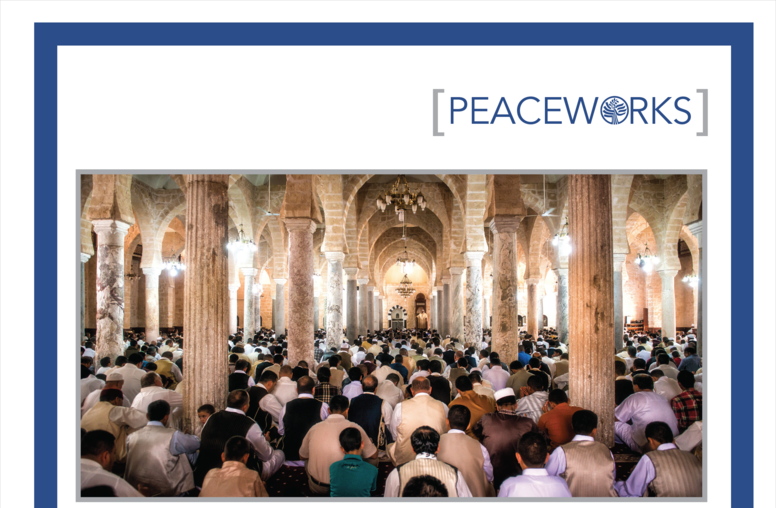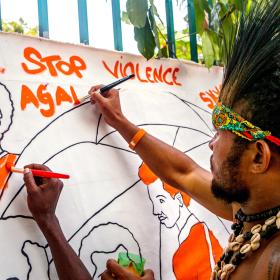
Each RPACC provides core baseline information about religion in the focus country, including religious demographics; details of major religious groups, institutions and leaders; the legal and constitutional status of religion; issues of freedom of religion and belief; and an overview of how religion intersects with key issues in public life with respect to governance, development and security. Additional analysis highlights the role of religion in relation to peace and conflict, and each RPACC provides links to supplementary resources for readers seeking additional information.
Additional Resources

Libya’s Religious Sector and Peacebuilding Efforts
Derived from two surveys conducted in Libya in 2014 and 2016, this report strives to heighten understanding of the country’s religious sector and its impact on governance and society. The findings—which are bolstered by the local knowledge of Libyan researchers—map the major religious trends, institutions, and actors in the country to describe how Libyans perceive the contribution of the religious sector to building peace and fostering justice and democracy.

Engaging the Post-ISIS Iraqi Religious Landscape for Peace and Reconciliation
Religious actors in Iraq wield considerable influence, and Iraqis perceive them as playing an important role in moving the country toward peace. This report analyzes the influence of Iraq’s religious actors—who has it, why they have it, and how they exercise it—to illuminate their crucial role in supporting peace and reconciliation efforts and to help policymakers and practitioners understand how to engage them in efforts to advance peace.

The Religious Landscape in Myanmar’s Rakhine State
This Peaceworks report maps the religious landscape of Myanmar’s Rakhine State, focusing in particular on the current and potential influence of religion in peace and reconciliation efforts. Part of a broader USIP initiative to map the religious landscape in conflict-affected environments, it presents key findings and offers recommendations to enable policymakers and peacebuilding practitioners to better navigate and engage within Rakhine’s religious landscape.

The Religious Landscape in South Sudan: Challenges and Opportunities for Engagement
Since the beginning of South Sudan's civil war in 2013, the country's religious actors have sought to play an active role in turning the tide from war and violence to peace and reconciliation. Drawing on interviews, focus groups, and consultations, this report maps the religious landscape of South Sudan and showcases the legitimate and influential religious actors and institutions, highlights challenges impeding their peace work, and provides recommendations for policymakers and practitioners to better engage with religious actors for peace.





